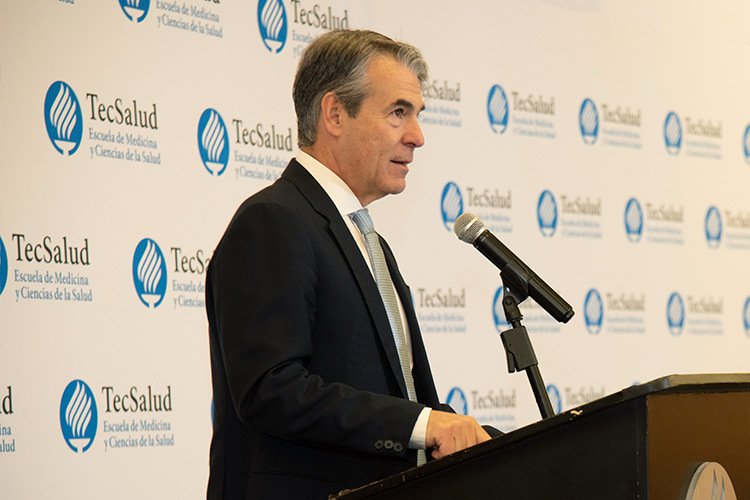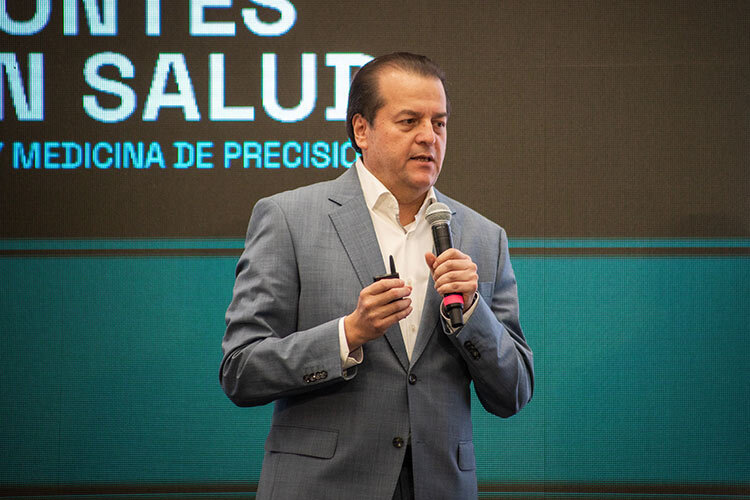According to Guillermo Torre, Rector of TecSalud and Vice President of Research at Tec de Monterrey, some of the fundamental objectives that academic health centers in Latin America should strive for are the need for a broader vision and driving medical progress to contribute to the wellbeing of their communities.
During the event The Future Role of Academic Health Centers: Leadership and Growth, co-organized by the Association of Academic Health Centers International (AAHCI), he mentioned the importance of academic health centers and the need for even more of them to exist, which would promote not only treatment of patients, but also drive research and social development in an integrated fashion.
“The mission of an academic health center is to go beyond what we’re doing with the patients, and this makes you create a strategy to improve the community’s quality of life, which is different to a hospital providing service,” he said.
The challenges of academic health centers in LATAM
Guillermo Torre mentioned that, unlike other regions such as the United States, there are a large number of medical institutions in Mexico and Latin America, as well as educational institutions in the field, despite having a smaller population.
However, one of the most important challenges lies in the difference between the objectives of these two institutions, posing challenges in terms of quality and opportunities for medical students.
Medical schools focus their efforts on education, training, and research, while hospitals face challenges such as financial and administrative pressures.
Furthermore, he added, most hospitals in Mexico are in the public sector and have governmental structures, but they do not possess a school.
Similarly, there are institutions in the private sector that chiefly focus on the area of monetary gain, instead of focusing on social development and medical treatment.
Torre said that the differences between these organizations highlight the importance of aligning objectives and visions to guarantee that quality of treatment, training professionals, and research are assigned equal priority.
“Although integrating patient care, education, and research sounds easy, it’s hard to create. If we want to develop an excellent model of medical education, we don’t just need good education in the classroom, but we also have to complement it with technology and techniques for education within the center itself,” he said.
The director suggested the need to explore medical education that does not only promote the training of doctors, but also considers the training of health professionals to deal with the growing demand for medical treatment effectively.
Research, an essential part of academic health centers
Research is another crucial component of the mission of medical education centers. Some important aspects of this area include participating in the development of new drugs and providing patients with opportunities for more advanced treatment, accessing innovative therapies from clinical research.
“This is something that doesn’t happen often in hospitals in Mexico, because that vision doesn’t exist,” he added.
The Rector of TecSalud explained the need for solid leadership at academic health centers to guarantee the best education, research, and medical treatment.
He stressed that TecSalud has collaborated on the creation of a model in which doctors have multiple responsibilities, including teaching, clinical research, and direct participation in research at health centers.
“It’s hard to replicate. Some could say it’s difficult in Mexico and Latin America due to the economy, the government, or the lack of doctors who are Nobel laureates, but we have the skill of people who can create it and the vision to inspire others in the medical and academic environment. We need it to happen.”
The AAHCI meeting The Future Role of Academic Health Centers: Leadership and Growth was held from June 22 to 23 at the Zambrano Hellion Hospital in Monterrey, Mexico.
This event included the participation of medical experts from Mexico, Colombia, the United States, Chile, and Brazil, as well as directors from the Association of Academic Health Centers International.
The mission of this association is to transform, adapt, and accelerate the outlook for health care through leadership, programs, policy development, publications, and research, to name but a few.


















